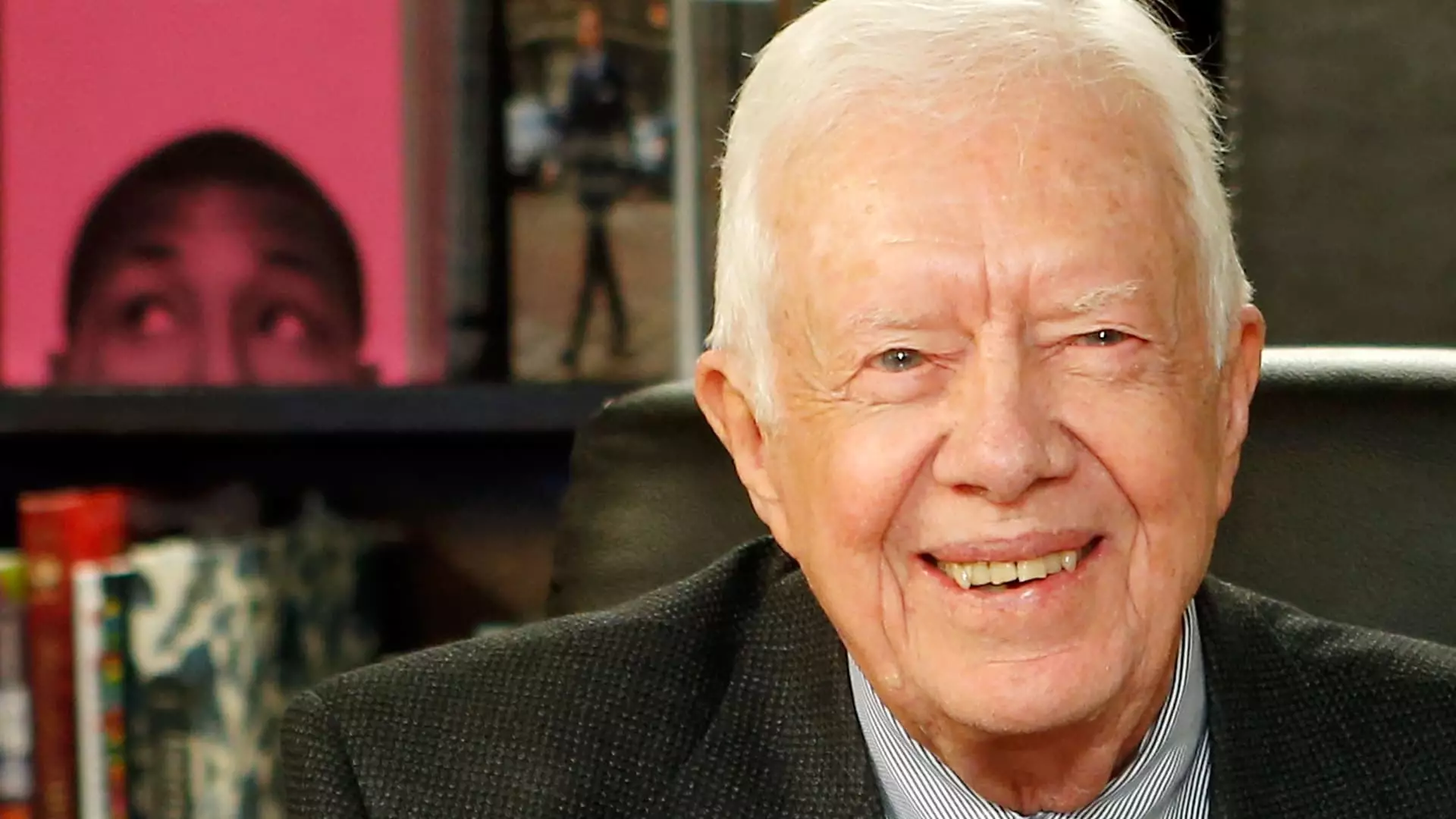Jimmy Carter, the 39th President of the United States, is a figure who embodies the complexities of leadership, moral integrity, and a commitment to human rights. His presidency, though marked by challenges, echoes a profound dedication that transcends the political landscape. By closely examining his words and actions, we can garner insights into his philosophies and approach to governance, which remain relevant in contemporary discussions of leadership and ethics.
From his acceptance speech at the Democratic National Convention in 1976, Carter expressed a candid acknowledgment of his personal flaws, stating, “I’ve looked on a lot of women with lust.” This revelation, shared during an interview with Playboy magazine, juxtaposes the traditional image of political candidates, reflecting a man who is unafraid to disclose his vulnerabilities. Such openness in a political figure invites a deeper conversation about the human experience—one that acknowledges imperfection while striving for growth. Carter’s willingness to be honest about his inner struggles reveals a commitment to humanity that aligns with his broader vision of moral leadership.
Carter’s profound belief in human rights is woven throughout his political career. In his inaugural address on January 20, 1977, he articulated a moral imperative for Americans to be engaged with the plight of freedom worldwide. He emphasized the importance of not merely observing global injustices but actively supporting societies that respect individual human rights. This call to action highlights a vital principle: true freedom cannot exist in isolation. Carter’s emphasis on human rights transcends political boundaries, suggesting that a cohesive global community requires empathy and responsibility.
His remarks on the energy crisis as the “moral equivalent of war” reveal another dimension of his leadership. While the country faced significant challenges, he called for unity and resilience among Americans, urging them to work toward constructive goals rather than succumbing to despair. This perspective aligns with his consistent advocacy for a just society, depicting energy conservation not merely as a solution to a crisis, but as a vital moral endeavor.
Carter’s legacy as a peace advocate is perhaps best exemplified through his mediation efforts in international conflicts, notably between Egypt and Israel. His belief that peace and human rights were the guiding principles of his life is reiterated in multiple interviews, including those conducted years after his presidency. He expressed pride in his efforts to normalize diplomatic relations with China and promote democracy in Latin America, demonstrating an unwavering commitment to both peace and the welfare of global citizens.
He once reflected on opportunities where he could have taken aggressive military action but chose restraint instead. This internal conflict underscores the moral complexities leaders confront—Carter’s decisions often reflected a deep consideration for the impact on innocent lives. His refusal to prioritize political gain over ethical responsibility continues to resonate, serving as a lesson for current and future leaders regarding the importance of humane governance.
Carter’s presidency was not without criticism, notably regarding his decisions during the Iran Hostage Crisis. In discussing his administration’s choices, he admitted how military action might have secured re-election but would have resulted in tragic consequences for innocent people. His reflections illustrate the notion that leadership extends beyond the immediate consequences of decisions. It encompasses a more profound responsibility to uphold moral values, even in the face of significant pressures.
Moreover, after his presidency, Carter’s involvement in humanitarian efforts, including the establishment of the Carter Center, affirmed his ongoing commitment to global human rights and public health. He continually emphasized the importance of peaceful resolutions, painting a picture of a leader dedicated to promoting justice and compassion well beyond his time in office.
Even in his later years, as evident during his cancer treatment, Carter’s reflections reveal a remarkable acceptance of life’s transient nature. His confident assertion of faith in life after death showcases a profound inner peace. This spiritual dimension of his legacy is a testament to his character—a leader who, despite confronting personal challenges, maintained hope and gratitude throughout his life.
Carter’s statement, “I’ve had a wonderful life,” encapsulates not only his personal satisfaction but serves as an invitation for us all to acknowledge the significance of relationships and shared experiences. It underscores the notion that true fulfillment arises from a life lived in service to others.
Jimmy Carter’s legacy extends well beyond the years of his presidency. His dedication to human rights, peace, and moral governance remains a guiding light for contemporary leaders. In a world frequently torn by conflict and discord, Carter’s unwavering commitment to empathy, integrity, and service can serve as an enduring model for how we might navigate the complexities of leadership and humanity in our own lives.


Leave a Reply